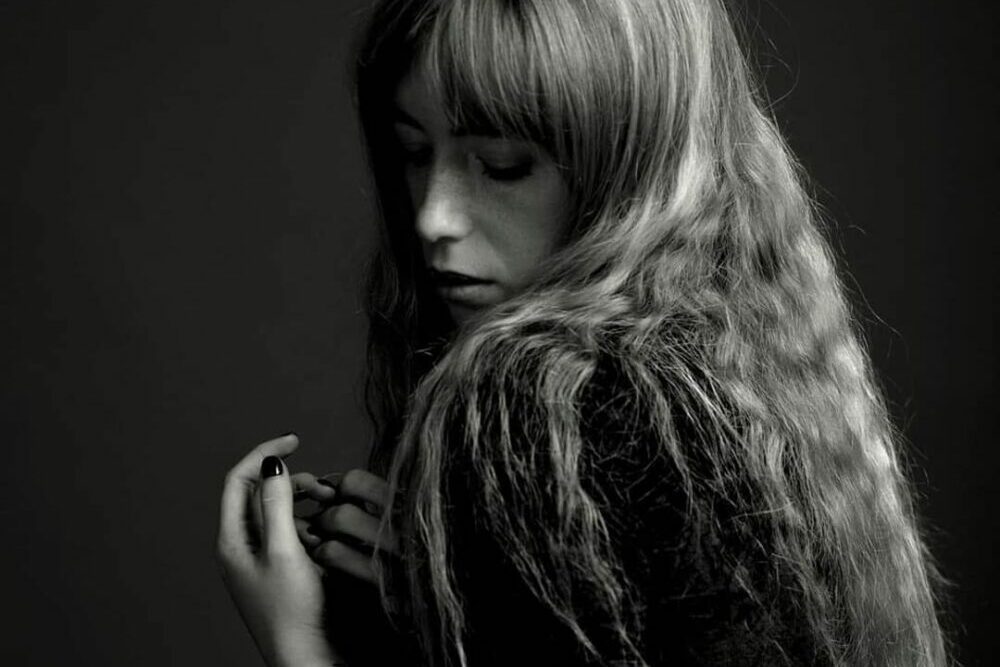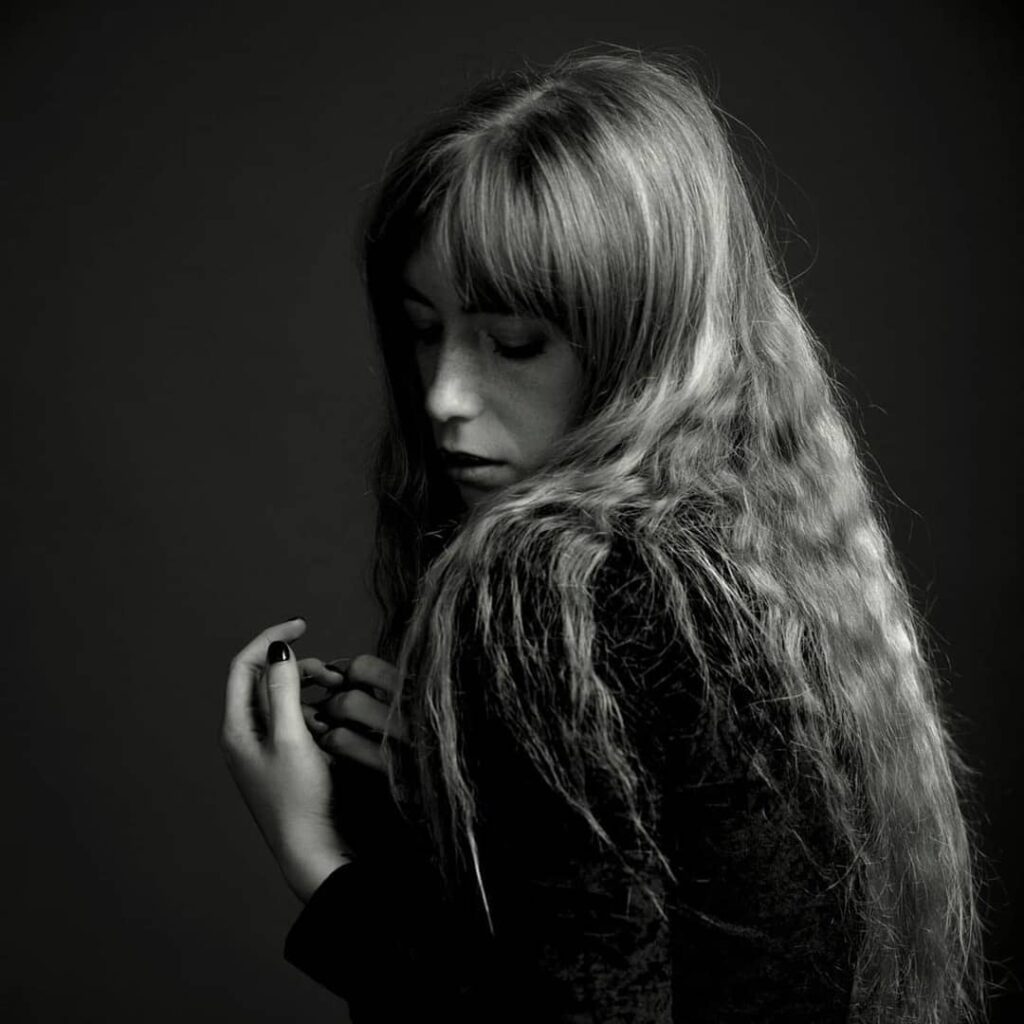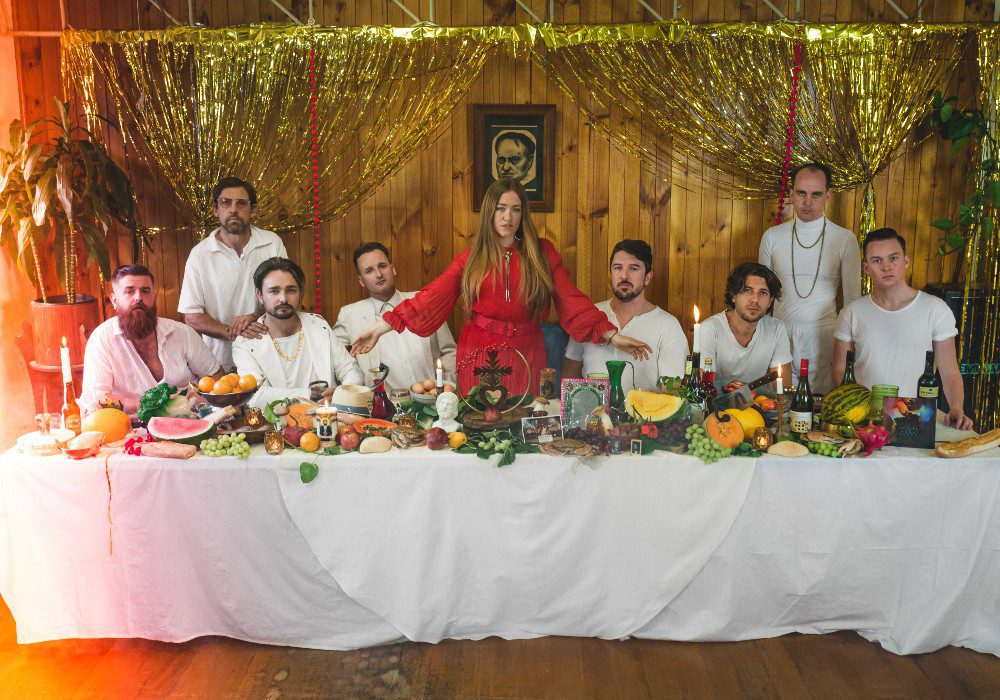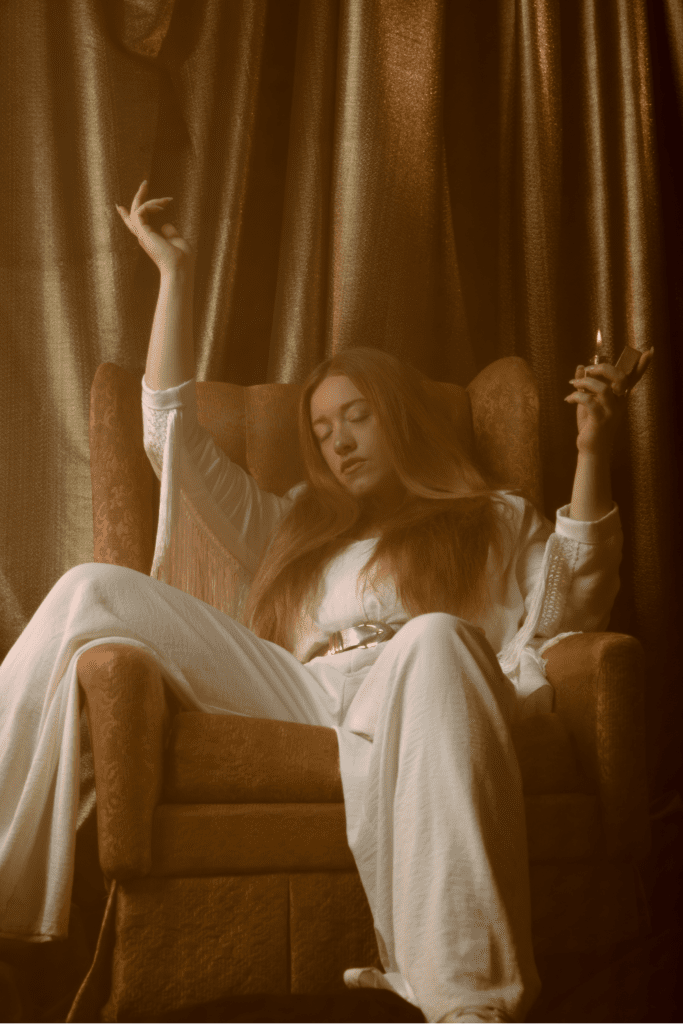

In the years since recording and touring with one of Melbourne’s most renowned jazz bands, Clairy Browne & The Bangin’ Rackettes, came to an end for Ruby Jones, the Melbourne born-and-raised singer-songwriter has crafted a folksy, guitar-driven spectrum of pensive, redemptive love songs. She’d been writing with her long-time friend and bandmate, lead guitarist and songwriting partner Jules Pascoe (Husky, JAZZPARTY, Jaala) throughout their time with the Rackettes, amassing a catalogue of songs to suffuse with blood, breath and life. But Jones admits that she’d initially written the songs with the intention of giving them to someone else.
“There’s a certain level of safety; you can be really vulnerable when you’re not planning on singing any of the lyrics yourself. Actually, that’s something I learned in the Rackettes; I was so open, vulnerable and honest in that band because at the end of the day, I could give it to Clairy and she’s such an incredible vocalist that it was a real joy, at the time, to write these songs and not have to sing them,” says Jones. In 2015 when the Rackettes ended, she adds, “I was not interested in having a band, but I wanted to write songs. And in Melbourne, if you want to get into the publishing side of things, you had to play them live or sing them yourself. Jules and I, then eventually my partner [bassist Joel Loukes] and [drummer] Selwyn [Cozens] got together and it was the perfect fit.”
As their muscular, well-honed supergroup coalesced, the songs Jones had written grew on her, too, and she could hardly picture anyone else singing them. “I didn’t really want anybody else to do it, and that’s when I knew. It was like, oh shit, I guess I have to do them now,” she confesses. “I went into this record being as honest, as vulnerable, as heartbroken as I wanted to be because I wouldn’t have to own it and seven years later, be talking to journalists about it!”
On November 12, Ruby Jones finally delivered her vulnerable, heartbroken, and ultimately healing folk-rock stories on debut LP The Woman Who Loves You. Each of the ten tracks has a throbbing heartbeat of its own, a storyline and a bristling sensory system that connects to the invisible spine running from the opening title track through to “Closing In.” There’s so much feeling in Jones’ voice, in her lyrical candour and the genuineness with which she addresses listeners, it’s as if we are part of the stories. As if we have lived these tales, too.
There’s also a romantic wink and a nod to the witchy magnetism of Fleetwood Mac’s Stevie Nicks, especially in the heartbreak-hurt of “Griffith Park.” That mid-70s luscious noodling guitar anchoring ethereal, psychedelic excursions into dreamy melodies gives a nostalgic sheen to the musical arrangements. There’s nothing sepia-toned about Jones’ songwriting and vocals though. Her melodious voice is gravel-edged on “Cruel” and sandpaper raw at the tip of her plaintive appeals to a careless lover, of whom she asks, “Why are you so cruu-eel?”
“’Cruel’ was the very first song that we wrote. I’d written other songs with Jules before this, but it was the first from our sessions together that made it onto the record. Originally, I came up with some of the chords on the piano because I wanted to bring something to our session. We’d started writing but I didn’t think anything would come of it,” Jones reveals. “The interesting thing about this song is that it’s gone through so many sonic iterations. It’s changed the most. The original demo is a piano-based country thing, written as a duet, a lot slower; then it went really country, really Americana, then we arranged it again almost as a Twin Peaks, prom night, rock ’n’ roll feel – which was my favourite version – but nothing felt right. Now, honestly, I think it sounds like a Prince song. It has a Purple Rain feel.”
On “Cruel,” she refers to her inability to let go as being “like Stockholm Syndrome” and the sense of being alone in the depths of a one-sided love affair is delivered in the downbeat atmosphere, a weeping guitar, intercut with savage fuzzy riffs towards the latter half of the song as backing singers bloom into harmony where both redemption and freedom seems possible.
Sprinkling the album with these beautiful harmonies, celestial songs and stardust seems to ease the soul-squeezing sadness of love lost, as well as deeper traumas. “Make It Out” sounds like an overexcited dog pulling its powerless owner towards sand, saltwater and sunshine; a subtle but frenetic beat keeps pressing the cadence upward, while a warm, sanguine bass line adds a lush laziness around the whole affair. But it’s deceptively upbeat.
“You know the song ‘Hey Ya’ by Outkast? I love that song and everyone gets down to it, but if you actually listen to the lyrics, it’s a really sad breakup song. I’d look out and people would be singing along [to ‘Make It Out’] so joyously and yet, it’s a song about a domestic violence situation. The verses are pretty dark,” Jones points out. “It feels like an exorcism.”
“I wasn’t in a super happy place at the time… it was one of the last songs that made it onto the record. It [was written] in 2018, two years after every other song on the record, primarily because we didn’t have a lot of up-tempo songs,” she continues. “The way that I approach songs is that I take inspiration from many different places and people in my life, and even relationships which I observe in others. ‘Make It Out’ was not about me at all. That’s the beauty of songwriting – you can shift the pronouns around…[but] some songs are pretty cut-and-dried autobiographical.”
Luckily, she doesn’t have to explain where her lyrics come from to her songwriting partner. “Jules and I are Irish Catholic so we don’t really talk about our feelings to each other, we put it into our music. That’s what makes our writing relationship function how it does,” she says. “He’s really good at what he does, and I’m really good at what I do, so I don’t really ever give him notes on the songs. Likewise, he never critiques what I have to say lyrically – he stays out of my way when it comes to our songs. We work well together in that sense.”
Jones’ vocal delivery harks to another singer capable of channeling dark tales with a country-folk-jazzy buoyancy and oozy sweetness: Rickie Lee Jones. The funky play on tempo and vibe that sounds like a starbust of Broadway, doo-wop, old-time rock and Americana on Pirates is a spiritual sister to Jones’ debut. High praise? It’s deserved. The melancholic, anthemic beauty and broken-but-healing resolve of “We Belong Together” channels its soul anew into Ruby Jones’ “Griffith Park” and “Backbone.”
Jones admits that Melbourne’s world-record breaking lockdowns were not a time of enormous productivity, but on the day she speaks to Audiofemme, she’s headed for Bakehouse Studios to record vocals for the second album.
“I learned from the Rackettes that when you’re going through something that’s really a traumatic, altering experience, for me personally, I just have to survive it then I can write about it,” she says. “I didn’t do anything in lockdown. I watched Buffy and ran on my little treadmill. As we started to get out of it, I had some ideas… Jules was the total opposite. He emailed me ten songs – these fantastic guitar pieces – when I reached out to suggest getting together. So, we’ve got seven songs. I think we’re all just gonna want to get into the studio as quickly as possible.”
She takes a moment and the smile in her voice beams through as she dials off. “We’ve been playing Woman Who Loves You for five years now… I’m excited to make some new music.”
Follow Ruby Jones on Instagram and Facebook for ongoing updates.



